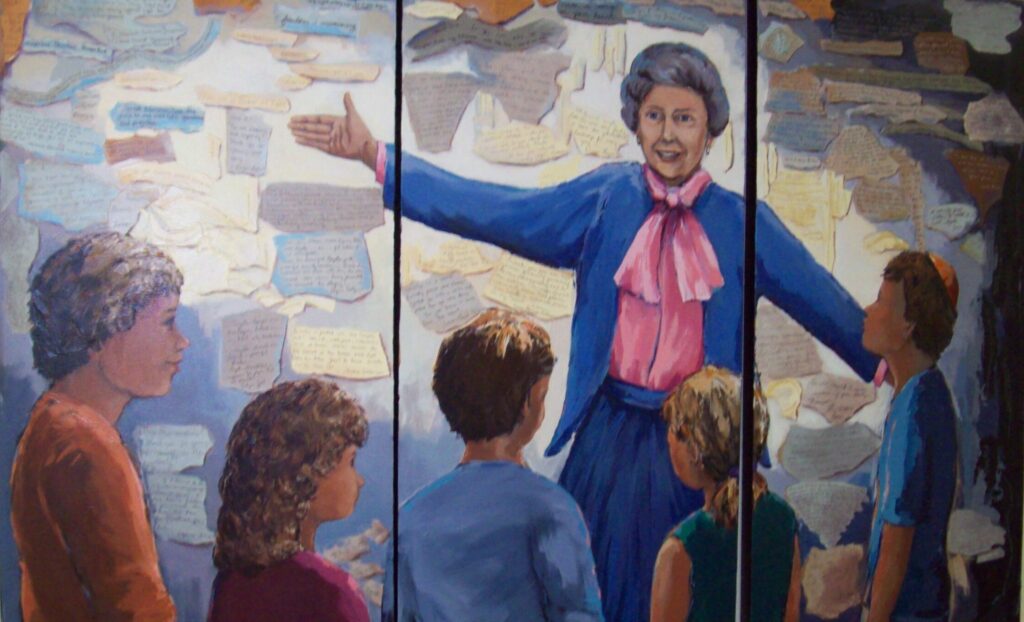Nelly Bondy’s poem was the first poem Ms. Fishman wrote, and it turned out to be one of her favorites. The poem details Mrs. Bondy’s decision-making process for removing her tattoo. Mrs. Bondy felt imprisoned in her own skin, always hiding her tattoos and overall Jewish identity. She never felt safe when she had the tattoo, as she believed it hindered her living a more authentic life. Martin Gilbert explains this best in his book, The Holocaust: The Jewish Tragedy, when he writes, “It was the Jews alone who were marked out to be destroyed in their entirety (pg. 824).” While many other nationalities and religions were killed during the Holocaust, it was the Jewish people who were sought out by the Nazis in the hope that every last one would be wiped off of the planet. Thus, even being Jewish post-war was injurious, as a great deal of anti-Semitism still existed.
The tattoo removal process back then was quite crude. Mrs. Bondy explains in her interview with Dr. David Boder, “It was quite an operation. It had to be cut out. It was very deep.” Also, in the transcript, when Mrs. Bondy reveals her left arm to Mr. Boder, it notes that “she shows a rather bad scar.”7 Nevertheless, Mrs. Bondy feels much freer and happier with her scar than ever with her tattoo.
The poem is organized into 6 stanzas. The first three are pre-tattoo removal, and the last are post-tattoo removal. Ms. Fishman put periods after the last sentence in the final three stanzas, showing how Mrs. Bondy became stronger after removing her tattoo. Mrs. Bondy gained a sense of confidence through her decision.
This poem juxtaposes Ms. Jola Gross’s poem, “Mirror,” since Ms. Gross decided to keep her tattoo. It is interesting to note which survivors choose to keep or remove their tattoos. Mrs. Bondy is what Primo Levi calls a “privileged Jew.” He defines the “normal” prisoners, the majority, as having “escaped death only by a combination of improbable events (pg. 17).” Those who were privileged experienced some type of “privilege” that “lifted oneself above the norm (pg. 41).”8 Mrs. Bondy served in a “comparatively protected job in the Political Department of the Auschwitz administration offices.”7 However, she was the one who desperately wanted to rid herself of her tattoo. Again, the process is different for each individual, and she does speak of constant hiding in fear; thus, that trigger of hiding was most likely the main decision behind removing her tattoo.
KNIFE
Imprisonment
My own skin
Target
My own kin
Numbers
Black to blue
Expiration
Past Due
Fully clothed
Naked to me
Disrobed
True Identity
Cut
So very deep
Yet I
Do not weep.
Knife
Over needle
My choice
No longer feeble.
Scars
Show how free
Left arm
No longer my identity.
